By Robert St. Martin
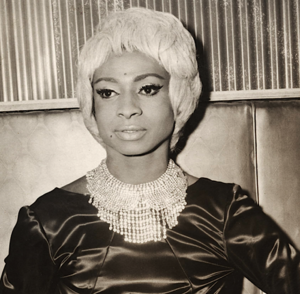
Los Angeles, CA (The Hollywood Times) 6/16/24 – One of the most interesting documentaries at Frameline 48 this June 2024 is Any Other Way: The Jackie Shane Story. Jackie Shane was one of music’s lost R&B stars who eclipsed Etta James and Little Richard. On the edge of stardom, Jackie disappears as a brilliant start of one of music’s pioneering Black trans performers. In this film from executive producer Elliot Page and the producers of the Emmy Award-winning Hip-Hop Evolution. Directed by Michael Mabbott and Lucah Losenberg-Lee, Any Other Way delves into what is known about the life of Jackie Shane, who mysteriously disappeared in 1971 and quit performing and her fans assumed that she had died.
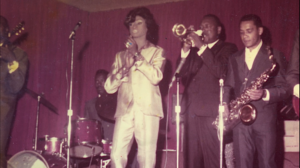
Considered to be a pioneer transgender performer, Jackie Shane was a contributor to the Toronto Sound and is best known for the single “Any Other Way,” which was a regional Top 10 hit in Toronto in 1963 and a chart hit across Canada in 1967. Her silky cover of William Bell’s “Any Other Way.” The song is about Jackie Shane gave it a subversive twist when she sang, “Tell her that I’m happy, tell her that I’m gay. Tell her that I wouldn’t have it any other way.” One thing Jackie Shane did not do during her decade of Canadian stardom was record a studio album. That changed in 2017, when the Chicago-based label Numero Group released her anthology, which was later nominated for a Grammy Award.
Recognizing the contribution of Jackie Shane to American R&B music, the GRAMMY Museum in Los Angeles will have a special screening of Any Other Way in the Clive David Theatre on July 17 as part of its Reel to Reel Programming. There will be a post-screening interview featuring filmmaker Michael Mabbott discussing the creative process behind the film and a special tribute performance of one of Shane’s GRAMMY Award-nominated songs to follow. American Express Early Access is available June 20 at 10:30am PT, general ticket sale begins June 22 at 12pm PT. More information can be found at: https://www.universe.com/
Jackie Shane said she identified as female from the age of 13, but throughout her 1960s career she was publicly referred to as a man, although she sometimes described herself to peers as gay. “I was just being me,” she said. “I never tried to explain myself to anyone – they never explained themselves to me.”
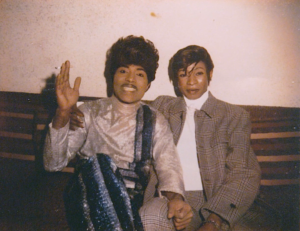
Originally from Nashville, Tennessee, Jackie was born in 1940 in the Jim Crow South and, as a teenager, began performing locally in the 1950s wearing long hair, make-up, and jewelry. She knew Lil Richard and, while living in Memphis, hung out with him as a fellow performer. Jackie Shane made her name after she moved to Toronto around 1959, becoming a force in its music scene and packing its nightclubs. Living in a time where simply having Black skin was enough to provoke hatred and violence in others in a place like Nashville, being trans added a whole other layer of danger. That is why Jackie Shane headed north to Toronto to pursue her career as an R&B singer.
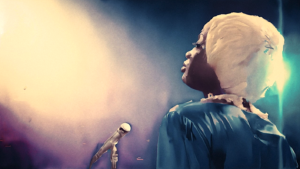
Using a never-released phone conversation involving Shane as its foundation, the documentary constructs a vibrant portrait of the singer’s life. Since there is limited archival footage of her outside of a performance on the “Night Train Show,” the filmmakers incorporate fantastic rotoscope animation that perfectly captures her presence on stage. Directors Michael Mabbott and Lucah Rosenberg-Lee have created a compelling investigation of an elusive life, as well as a talent so striking you’ll be amazed it remained forgotten for so long.
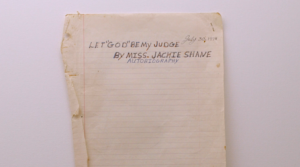
Jackie Shane passed away in 2019 and directors Michael Mabbott and Lucah Losenberg-Lee were able to get access to her house and there they found Jackie Shane’s autobiography: “We found Jackie’s autobiography, which was staggering to a documentarian. Then, we found unreleased recordings that have become part of the film. Those discoveries that were incredible. After Jackie passed away, we started working with her family, who didn’t know that Jackie existed and then inherited her incredible archive. As they were discovering who Jackie was, we were understanding her through her jewelry and tapes. What was also born out of that is the family’s story, which was a slightly unexpected creative approach.”
Jackie Shane’s family helped to fill in some of the missing picture about Jackie Shane as a person: “Hearing the family talk about her, learn about her legacy and describe what it meant to them was obviously very personal but also really universal. This is a family that lived blocks away from her, didn’t know she was there and missed out on having her.”
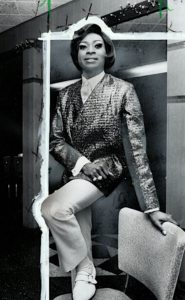
Jackie Shane may have been a star in Canada, but it didn’t feel right to her, she said, that her mother was living by herself so far away. So, she went to live with her in Los Angeles, and they later moved back to Nashville, where her mother died in 1997. There Jackie lived until her own death in 2019. After her mother died, Ms. Shane lived an intensely private life. She watched old movies and network dramas, ordered takeout and ventured outside only every once in a while. When she did, she wore a hat and dark glasses lest she be recognized.
The directors found Jackie Shane still living in Memphis and began interviewing her on a weekly basis: “She intentionally and thoughtfully unfolded her story like an audition to determine, how are you going to react to this? or, can you handle this? It was like an essay on her life that she was building layer by layer to make sure that the person she was telling it to be was hearing it in the right way. She wanted her story to be told, and I wanted to listen. A lot of the film is based on recordings of those conversations.”
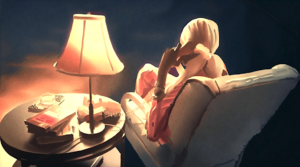
Ms. Shane watched history march on from the comfort of relative anonymity. In her interview with The Times, she shared her thoughts on the legalization of same-sex marriage (“We’ve had to fight for everything that should have already been on the table”) and shook her head at the state of pop music (“I’m going to have to school these people again”).
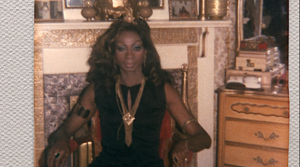
The bedrock of the documentary are Jackie’s own words in conversations that reflects “her voice, with all its humor, gravitas, history and philosophy.” For the rotoscope animation, the directors called on Sandra Caldwell, who plays later-life Jackie in the phone recordings. Makayla Walker played Jackie as the young performer. The fabulous soundtrack features the voice of Jackie herself.
This moving and haunting documentary is a must-see at Frameline and deservedly was given the “Out in the Silence Award for 2024” by Frameline. Not since the arrival of the documentary Sugar Man in 2013 has there been a film with a song that will send shivers done your back like Jackie Shane’s performance of “Any Other Way.” Get your ticket to see the film at the Palace of Fine Arts in San Francisco on June 23, 2024, at 6:00 pm. For tickets, go to: https://www.frameline.org/films/frameline48/any-other-way-the-jackie-shane-story






